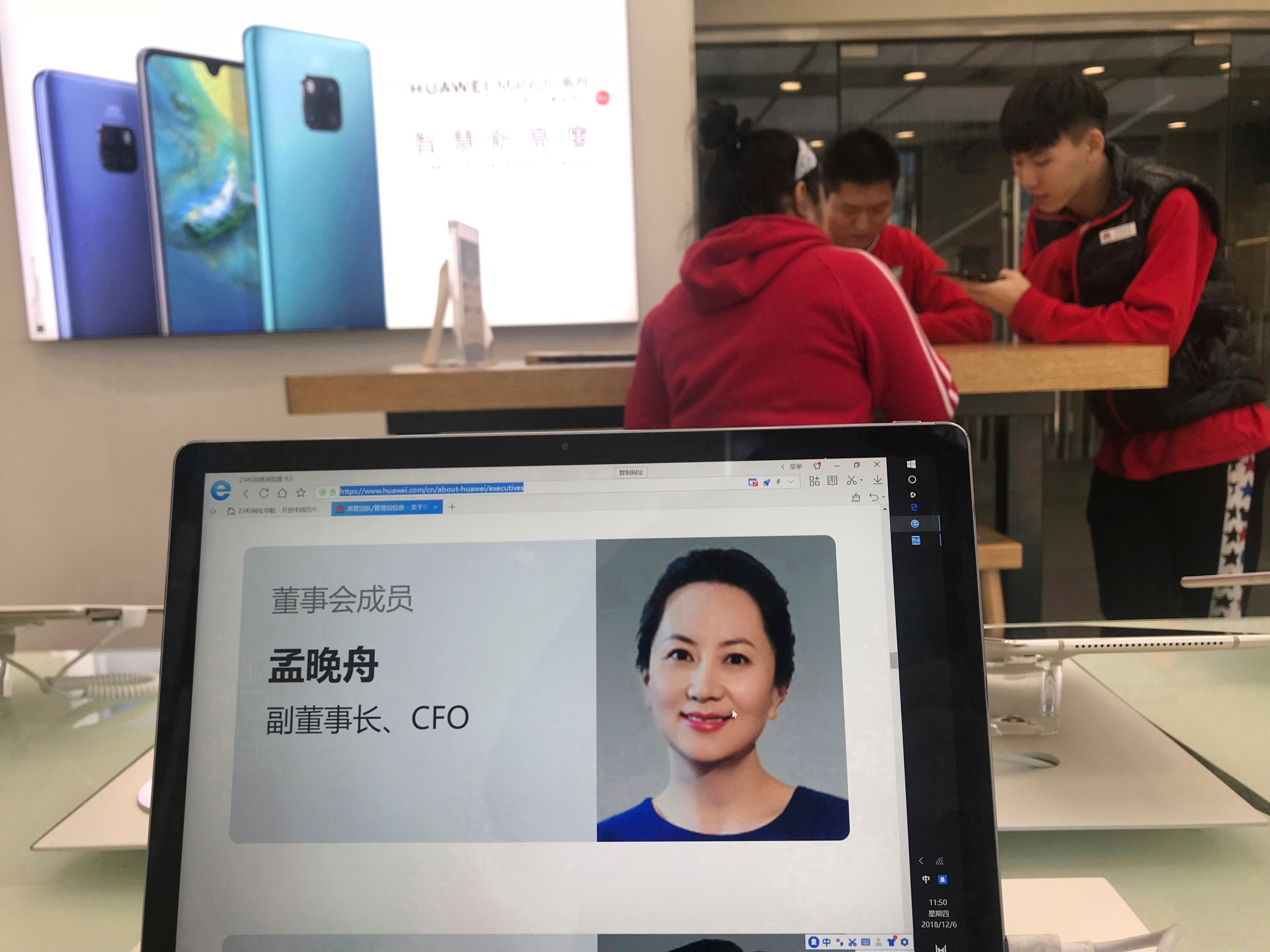Dec 11, 2018
Huawei arrest sparks backlash that could hurt China-U.S. trade talks
, Bloomberg News

Calls to boycott Canadian goods, throw away iPhones and load up on Huawei Technologies Co. handsets are among signs of budding public anger in China over the arrest of the Chinese technology giant’s chief financial officer in Vancouver.
A number of Chinese companies have posted notices to their social media accounts proclaiming support for Huawei, while offering employees subsidies and other incentives to purchase the firm’s products. Shenzhen-based Menpad also threatened to fine employees if they bought Apple Inc.’s phones, according to its website, while some social media users offered ideas on how to get rid of iPhones.
The arrest of Meng Wanzhou has grabbed global attention amid concerns her detention could derail talks between the U.S. and China to hammer out a trade deal. Escalating public outrage in China could leave Beijing little room to compromise as authorities weigh their desire to buoy the economy against the need to not appear weak at home.
WEIGH IN

Should Canadian brands that have expanded in China be worried about fallout from Meng’s arrest?
Over the past weekend, the Chinese government separately summoned the ambassadors of Canada and the U.S. to condemn the arrest, including threats of grave consequences. China’s state media have called the arrest a “despicable rogue’s approach" and painted the move as a politically motivated effort to contain China’s rise.
Canadian authorities detained Meng on Dec. 1 on behalf of the U.S., which alleges she committed fraud to sidestep sanctions against Iran. This week, a judge allowed her to stay in her Vancouver home as she awaits a possible extradition to the U.S. after four former colleagues and friends joined her husband in pledging a combined $10 million (US$7.5 million) in cash and home equity to support her bail request.
Comparatively Muted
Though the sentiment echoes the fury that erupted into anti-Japanese protests and boycotts in 2012 over control of islands claimed by both countries, the reaction to Meng’s arrest is still comparatively muted, and has been contained mostly online. The protests six years earlier saw demonstrators smash Japanese-branded cars, set fire to some showrooms and force the closure of Uniqlo apparel outlets owned by Fast Retailing Co.
On Chinese social media, the U.S. and Canadian embassies’ accounts on the Weibo platform have been flooded with comments denouncing the arrest and calling for Meng’s release. Calls have also gone out on Weibo to boycott Canadian brands, including Canada Goose Holdings Inc. The luxury parka-maker, which has plans to launch a flagship store in Beijing, has seen its stock plunge more than 18 percent since news of Meng’s arrest.
Chinese authorities do appear to be taking steps to rein in the furor, according to a report by China Digital Times. The U.S.-based outlet, which tracks China’s censorship of online content, reported that Chinese media received a government notice to stick to official reporting on the arrest and to "strictly manage comments."
Meanwhile, security outside the U.S. embassy in Beijing is tight. On Tuesday afternoon, at least 10 policemen stood guard in addition to the usual military personnel, accompanied by a German Shepherd guard dog. A police car was seen parked outside the Canadian building this morning, while a police officer patrolled the street.

